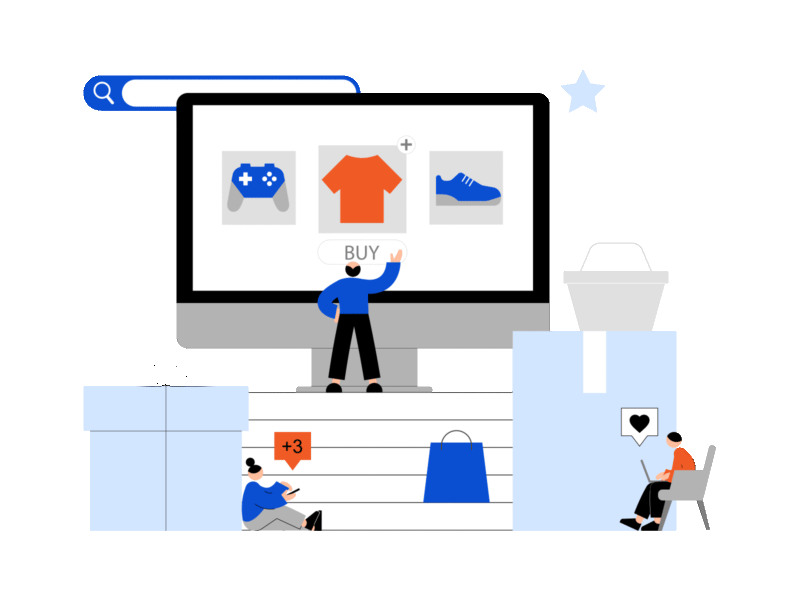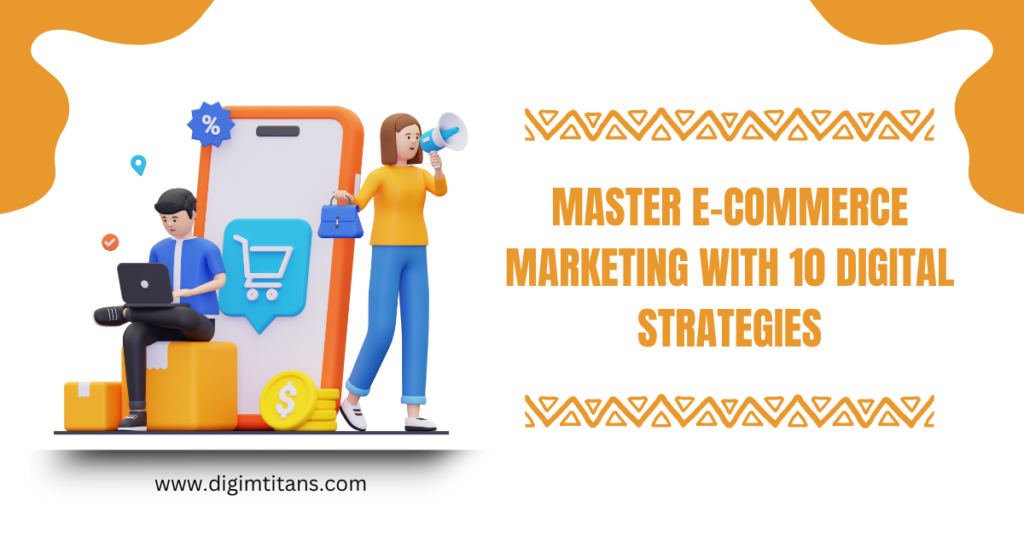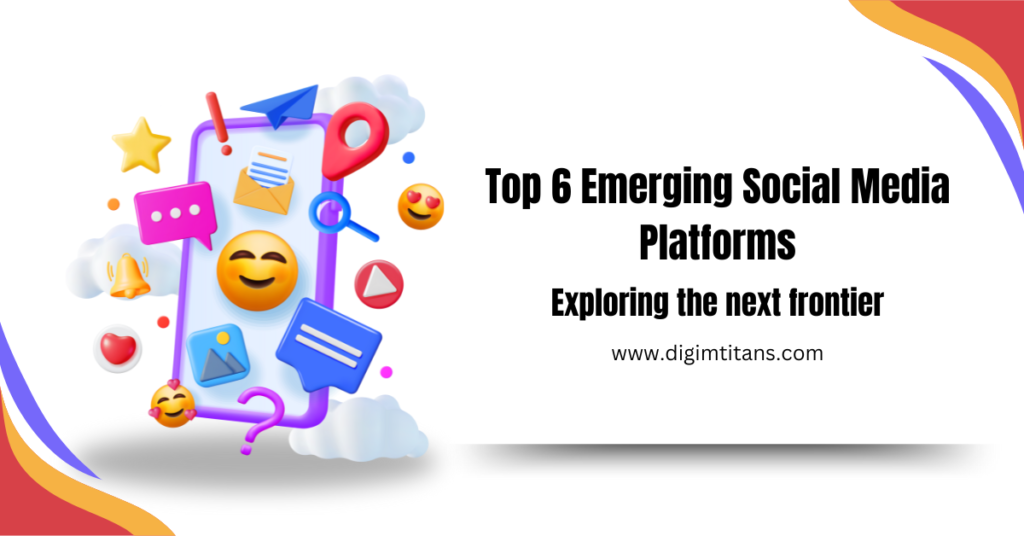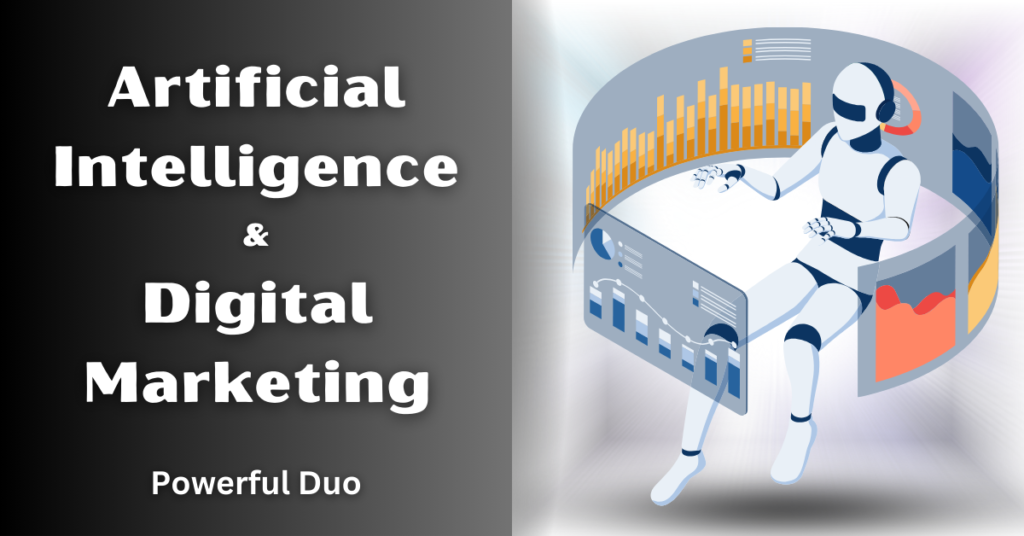In the dynamic world of digital commerce, mastering e-commerce marketing has become non-negotiable for businesses looking to thrive. With an ever-expanding online marketplace, the ability to effectively promote a product or service on an e-commerce platform can significantly impact a brand’s visibility and online sales. As consumers increasingly turn to the internet for their shopping needs, understanding and implementing advanced digital marketing strategies is crucial for staying ahead of the curve and fostering growth in the competitive e-commerce landscape.
This article delves into why digital marketing holds paramount importance for e-commerce, outlines the various channels through which businesses can execute their marketing efforts, and explores advanced tactics that can elevate an e-commerce marketing campaign. Additionally, it highlights the symbiotic benefits of integrating digital marketing with an e-commerce platform, enhancing the potential for online sales and customer engagement. By the conclusion, readers will be equipped with actionable insights to excel in e-commerce marketing through strategic digital avenues.
Why Digital Marketing is Crucial for E-commerce

Increasing Online Visibility
Digital marketing significantly enhances online visibility, making businesses discoverable to potential customers across various digital platforms. By optimizing social media pages and integrating SEO strategies, companies ensure that their online presence is robust, attracting more organic traffic and improving search engine rankings. This visibility is crucial as studies have shown that a majority of users do not venture past the first page of search results, making high rankings essential for attracting website clicks and potential sales.

Driving Sales and Revenue
The primary goal of digital marketing in e-commerce is to drive sales and increase revenue. Effective digital marketing strategies, such as search engine marketing (SEM) and email marketing, directly influence consumer purchasing decisions and enhance the conversion rates from browsing to buying. By leveraging tools like PPC and SEO, businesses can appear prominently in search results at the critical moment when potential customers are ready to make a purchase, thereby increasing the likelihood of sales.

Customer Retention and Loyalty
Digital marketing fosters customer retention and loyalty by enabling personalized and engaging customer experiences. Through targeted communications and personalized content, businesses can build closer relationships with their customers, enhancing customer satisfaction and loyalty. Additionally, loyalty programs and social media interactions play a significant role in retaining customers by offering personalized rewards and resolving customer issues promptly, which are essential for long-term customer engagement.

Competitive Advantage
Employing digital marketing provides e-commerce businesses with a competitive edge. By understanding customer needs and behaviors through data collected via digital channels, companies can tailor their marketing strategies to better meet customer expectations and stand out in a crowded market. Furthermore, businesses that effectively use digital marketing tools and techniques are more likely to capture customer attention and differentiate themselves from competitors.

Data-Driven Decision Making
Data-driven decision-making is integral to the success of digital marketing strategies in e-commerce. By analyzing data from various sources like customer interactions and market trends, businesses can make informed decisions that enhance marketing effectiveness and business performance. This approach allows for the optimization of marketing campaigns and inventory management, pricing strategies, and customer segmentation, ensuring that resources are allocated efficiently to maximize ROI.
Types of E-commerce Digital Marketing Channels
Exploring the various digital marketing channels is essential for any e-commerce business aiming to optimize its online presence and sales. Each channel offers unique advantages and can be tailored to meet specific marketing goals and target audiences.

Organic Search (SEO)
Search Engine Optimization (SEO) is a fundamental channel for enhancing an e-commerce platform’s visibility. By optimizing website content with relevant keywords, businesses improve their chances of ranking higher in search engine results, which is critical as higher visibility can lead to increased traffic and potential sales.

Paid Search (SEM/PPC)
Search Engine Marketing (SEM) or Pay-Per-Click (PPC) advertising allows e-commerce businesses to achieve immediate visibility on search engines. By bidding on specific keywords, companies can display ads at the top of search engine results, directly targeting potential customers who are actively searching for related products or services.

Content Marketing
Content marketing involves creating and sharing valuable content to attract and engage a defined audience. For e-commerce, this could include blogs, videos, and infographics that highlight product uses, industry news, or DIY tips. Effective content marketing not only informs potential customers but also establishes the brand as a thought leader in its niche.

Email Marketing
Email marketing remains a powerful tool for e-commerce businesses to reach customers directly. Through personalized emails, businesses can promote products, share exclusive offers, and nurture customer relationships. Well-crafted email campaigns can encourage repeat purchases and enhance customer loyalty.

Social Media Marketing
Social media platforms offer a dynamic environment for e-commerce marketing. Businesses can use these platforms to promote products, engage with customers, and extend their market reach. Social media marketing is particularly effective for building brand awareness and fostering community engagement through regular posts, ads, and interactions on platforms like Facebook, Instagram, and Twitter.
Each of these channels provides distinct benefits and, when integrated effectively, can significantly enhance an e-commerce business’s marketing strategy, driving both online visibility and sales.
Advanced E-commerce Marketing Tactics
Conversion Rate Optimization (CRO)
Conversion Rate Optimization (CRO) is a technique aimed at increasing the percentage of visitors to an e-commerce site who convert into customers, or more generally, take any desired action on a webpage. The process involves enhancing the user experience to encourage more conversions. This might include optimizing web pages, simplifying the checkout process, and ensuring that the site is easy to navigate. Tools such as Google Analytics and HotJar provide insights into user behavior, helping to pinpoint areas for improvement.
Retargeting Ads
Retargeting ads serve as a powerful tool to reconnect with visitors who have left an e-commerce site without purchasing. By using cookies, these ads target users who have shown interest in specific products and prompt them to revisit the page and complete their purchase. Statistics show that retargeting ads are 76% more likely to be clicked on than regular display ads. This strategy not only helps in reducing cart abandonment but also increases sales conversions by keeping the products top of mind.
Marketing Automation
Marketing automation in e-commerce involves using software to streamline, automate, and measure marketing tasks and workflows to increase operational efficiency and grow revenue. By automating repetitive tasks like email marketing and social media posting, businesses can focus on more strategic activities. This automation leads to more personalized customer experiences, as the system can tailor communications based on user behavior and preferences.
Influence of Mobile Marketing
With the increasing use of mobile devices for shopping, optimizing e-commerce for mobile users has become crucial. Mobile optimization includes responsive design, faster loading times, and streamlined navigation, which enhance the user experience and potentially increase sales. Furthermore, integrating mobile marketing strategies such as SMS marketing and mobile-optimized ads can significantly boost engagement and conversions.
User-Generated Content Strategies
User-generated content (UGC) is a valuable marketing tool that leverages content created by customers, such as reviews and social media posts, to enhance trust and engagement. UGC helps in building brand authenticity and can influence purchasing decisions, as potential customers see real feedback from other users. Encouraging customers to share their experiences on social media can amplify reach and influence, further driving sales.
Benefits of Integrating Digital Marketing with E-commerce
Greater Customer Insights
Integrating digital marketing with e-commerce enables businesses to gather and analyze vast amounts of data, providing deeper insights into customer behaviors and preferences. This data-driven approach allows for more targeted marketing strategies, enhancing the ability to meet customer needs effectively. By leveraging tools like Google Analytics and Facebook Analytics, companies can track which channels deliver the best results and understand what keeps high-value customers returning.
Seamless Shopping Experience
Digital marketing integration helps create a seamless shopping experience across all digital touchpoints. By ensuring that the customer journey is consistent and intuitive, from the first interaction on social media to the final purchase on the e-commerce site, businesses can significantly reduce friction and enhance customer satisfaction. This integration includes optimizing websites for usability, ensuring mobile responsiveness, and providing personalized interactions across all platforms.
Personalized Marketing
Personalization is a key benefit of integrating digital marketing with e-commerce. By analyzing customer data, businesses can tailor their marketing efforts to individual preferences and behaviors, making marketing communications more relevant and effective. Techniques such as personalized email marketing, targeted ads, and customized product recommendations help increase conversion rates and foster customer loyalty.
Efficient Budget Allocation
Effective integration of digital marketing allows for more efficient budget allocation. By understanding which channels and tactics yield the best ROI, businesses can optimize their spending to focus on the most profitable strategies. This approach not only helps in maximizing returns but also in minimizing wasted expenditure on less effective marketing efforts. Companies can use data to refine their budgeting strategies, ensuring that resources are allocated to areas with the highest potential for growth.
Scalable Growth
Digital marketing provides the tools and capabilities necessary for scalable growth in the e-commerce sector. As businesses grow, they can easily adjust their marketing strategies and budgets to accommodate expanding needs without compromising on efficiency or customer experience. Scalable solutions like marketing automation and multi-channel strategies ensure that businesses can continue to expand while maintaining high levels of customer engagement and satisfaction.
Conclusion
Through the exploration of digital marketing strategies tailored for the e-commerce landscape, this article underscores the pivotal role that targeted online tactics play in enhancing an e-commerce business’s visibility, engagement, and sales. By implementing a multi-channel approach that includes SEO, content marketing, social media, and more, businesses can not only attract but also retain a loyal customer base. Additionally, advanced techniques such as conversion rate optimization, retargeting ads, and marketing automation are instrumental in creating personalized, efficient, and impactful marketing campaigns that drive growth and customer satisfaction.
As the digital marketplace continues to evolve, integrating these digital marketing strategies with e-commerce operations is not just beneficial, but essential for staying competitive and achieving scalable growth. The significance of data-driven decision-making cannot be overstated, enabling businesses to optimize their strategies for the best results. In the quest for online dominance, a well-crafted digital marketing strategy is the beacon that guides e-commerce businesses towards achieving their goals, fostering long-term success in the dynamic digital economy.
FAQs
1. How is Excel beneficial in digital marketing?
Excel is a critical tool for digital marketing, especially for data analysis and campaign optimization. It assists in measuring campaign performance, tracking progress, and discovering new insights that can enhance marketing efforts.
2. What are some effective e-commerce strategies to boost sales for small businesses?
To increase sales in your small e-commerce business, consider implementing these strategies:
- Implement advanced product filtering.
- Showcase new products prominently.
- Expand payment options.
- Offer discounts.
- Utilize social proof.
- Develop loyalty programs.
- Provide discounted or free shipping options.
- Implement advanced product filtering.
- Showcase new products prominently.
- Expand payment options.
- Offer discounts.
- Utilize social proof.
- Develop loyalty programs.
- Provide discounted or free shipping options.
3. What are the best strategies to succeed in e-commerce?
To excel in e-commerce, focus on the following strategies:
- Develop a user-friendly, simple, and quick-loading e-commerce website.
- Regularly update a blog to engage customers.
- Effectively manage and leverage social media business pages.
- Select the most suitable social media platforms for your brand.
- Incorporate video content into your marketing.
- Implement a high-converting sales funnel.
4. How do e-commerce and digital marketing strategies benefit your business?
With the increasing trend of online shopping, mastering e-commerce and digital marketing strategies is crucial. These strategies enhance your brand’s visibility, attract more qualified traffic to your site, and improve conversion rates, supporting overall business growth.
Contact us:
Find more on: Digimtians – A Digital Marketing Agency™️


